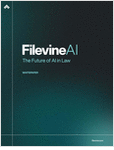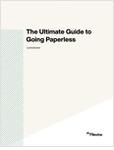A Manhattan federal judge on Tuesday conditionally approved a $602 million insider trading settlement that SAC Capital Advisors reached with the Securities and Exchange Commission last month. However, in his opinion, U.S. District Judge Victor Marrero became the latest judge to raise concerns over the SEC’s practice of allowing defendants to settle enforcement actions without admitting or denying the underlying allegations.
In questioning the SEC’s use of "neither admit nor deny" settlements, Marrero cited his Southern District colleague Jed Rakoff’s controversial November 2011 refusal to sign off a $285 million deal between Citigroup and the SEC. In Tuesday’s decision, Judge Marrero took the unusual step of conditioning final approval of the SAC settlement on the outcome of the appeal in the Citi case. The U.S. Court of Appeals for the Second Circuit heard arguments in February over whether to reverse Rakoff.
In November 2012 the SEC accused Mathew Martoma, former portfolio manager of SAC’s CR Intrinsic Advisors unit, with sharing inside tips on an Alzheimers drug that allegedly helped SAC make $276 million in profits and avoid losses on other pharmaceutical investments. In March, the the SEC announced that it had reached a $602 million settlement with the SAC unit.
According to Tuesday’s ruling, both the SEC and SAC had argued that the hefty $602 million settlement figure meant that any admission of guilt was essentially "none of the Court’s business." Marrero obviously disagreed. Discussion of the settlement’s "neither admit nor deny" provisions take up the majority of his 34-page decision. The judge found the proposed settlement "significant and proportional" to the amounts allegedly at issue, unlike Judge Rakoff’s characterization of the settlement amount in the Citi case as "pocket change." But to Marrero, the SAC matter was one of a new breed of cases where the stakes are so high and the allegations are so egregious that judges can’t easily ignore questions of culpability.
"In this age when the notion labeled ‘too big to fail’ (or jail, as the case may be) has gained currency throughout commercial markets, some cynics read the concept as code words meant as encouragement by an accommodating public–a free pass to evade or ignore the rules, a wink and a nod as cover for grand fraud, a license to deceive unsuspecting customers," the judge wrote. He cited the pending criminal case against Martoma, which is nearing trial, as compelling reason not to "rubber stamp" the deal. "Part of the court’s reluctance to approve the proposed settlement here at this time is premised on the fact that settlement, especially a settlement on this order of magnitude, without an admission of liability, especially when there are pending related criminal proceedings, ‘would deprive the public, on an important matter of public concern, of an adjudication the truth of the [SEC's] allegations,’" Marrero wrote.
SAC is represented in the litigation by Daniel Kramer of Paul, Weiss, Rifkind, Wharton & Garrison and Martin Klotz at Willkie Farr & Gallagher. A spokesman for SAC declined to comment on the decision.
Martoma, who is represented by counsel at Goodwin Procter, is not part of the proposed SEC settlement.
Correction: An earlier version of this story reported incorrectly that Martoma was represented by Stillman & Friedman. He recently turned instead to Richard Strassberg at Goodwin Procter. We regret the error.





